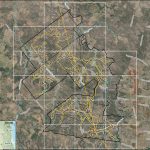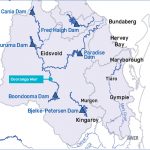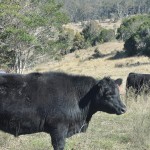
December 10, 2019
A three-year inquiry into invasive weeds in Queensland – which involved multiple public hearings and produced an 87-page report – has resulted in a one-line recommendation to the State Government.
The recommendation? “The committee recommends that the Legislative Assembly notes this report.”
The Opposition said the Labor-dominated parliamentary committee had “politically sanitised” the three-year inquiry.
However, Committee chairman, Labor MP Chris Whiting, chided the LNP for its “expectations”.
“It is clear LNP Members were not constrained in their expectations of this inquiry. They expected a report that could be used as a lever to change government policy, despite the State Government not initiating this inquiry,” Mr Whiting wrote in a forward to the report.
And he said he was considering his “options” about comments made by Shadow Agriculture Minister Tony Perrett who claimed the report had been deliberately delayed.
“I have been disturbed that there have been suggestions from the Member for Gympie that the report of the committee was deliberately delayed,” Mr Whiting wrote.
“These comments are incorrect and misleading. This inquiry was not referred to the committee by the Parliament, as it was self-referred. No reporting date was ever set. The decisions on progress of this inquiry and publication of the report are made by the committee, and not the government.
“As the Chair I will reflect on my options to take this matter further.”
Mr Perrett said to hand down the report without any substantive recommendations showed just how ignorant the Palaszczuk Labor Government was about the issues facing regional Queenslanders.
“Queenslanders were told this was their opportunity to have their say and make a real difference, but after three years and thousands of combined hours of effort there is nothing to show from it,” he said.
“While Queensland loses the battle against weeds in this State, Labor Minister Mark Furner continues to play politics with rural and regional Queensland.
“This is the same Minister who committed $5 million of State funding to match the Federal Government’s commitment to tackle the spread of prickly acacia, and then did not provide the funding after the Federal Election.”
The State Development, Natural Resources and Agricultural Industry Development Committee handed down the report on Friday evening.
The inquiry was initiated by the Agriculture and Environment Committee (AEC) before the last State election.
As it was not possible to examine government programs for all weeds, the AEC resolved to examine the impact of three invasive plant species as case studies: Prickly Acacia, Giant Rat’s Tail Grass, and Fireweed.
The AEC received 60 public submissions and held six public hearings.
The AEC was not able to finalise its report before the 2017 State election. After the election, the State Development, Natural Resources and Agricultural Industry Development Committee took over the inquiry.
“There was a high level of interest in the inquiry, especially from the agricultural industry sector, and public hearings were well-attended,” Mr Whiting wrote.
“The committee appreciated the engagement and commitment displayed by submitters and attendees.
“This inquiry was constrained in scope and ambition. It was to examine the impact of just three weeds as case studies; one of these weeds has been present in Queensland since the 19th century.
“Working within the constraints of these three case studies, I believe we found that local government are meeting their responsibilities, and control programs for weeds on Crown Land are effective.
“Queensland biosecurity programs are also effective and financed appropriately.
“Some submitters suggested better co-ordination and education would improve the situation, and the Federal Government has a responsibility to effectively lead national efforts on biosecurity.”






















